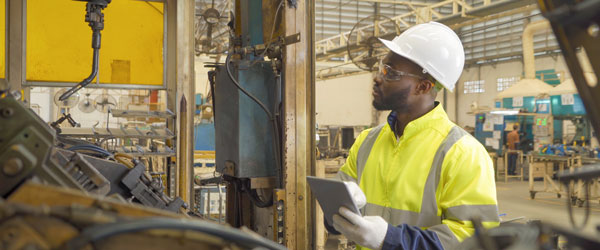Case Study
Edge Computing in Midstream Oil & Gas
Why this company standardized on Stratus Edge Computing to digitally transform terminal and pipeline automation
How this large midstream Oil & Gas company standardized on Stratus® Edge Computing platforms to digitally transform terminal and pipeline automation
Challenges
- Multiple, disparate systems
- Legacy technology applications and PCs
- Frequent equipment failures
- Significant unplanned downtime
Solution
- Stratus ztC Edge®
- Stratus ftServer®
- Rockwell Automation PlantPAX®
- Toptech Systems
Benefits
- Increased asset lifecycles from 3 years to 6 years
- Eliminated unplanned downtime
- Reduced workload for IT and OT personnel
- Standardized scalable and reliable hardware and software across operational applications
- 24/7 Stratus support and services
One of the largest independent liquid petroleum product pipeline operators in the United States owns and operates a diversified network of integrated assets providing trusted midstream logistic solutions. With a global terminal network composed of more than 100 liquid petroleum terminals, over 7,000 miles of domestic pipelines, and millions of barrels of tank capacity, this Oil & Gas company manages the complex distribution of petroleum-based products. In recent years, the organization has grown by making sizable acquisitions to become a global leader in the terminal distribution segment.
To keep up with rapid growth, they needed to modernize technologies to support the expansion of operations while also increasing reliability and manageability of geographically dispersed IT systems. The company discovered Stratus at an industry conference, which led to proactive internal discussions on implementing Stratus Edge Computing platforms to support their crucial terminal operations applications, handling thousands of gallons of gasoline and distributing to gas stations across the country. After doing their due diligence comprising many sessions of testing across all disciplines including field operations, infrastructure operations, client technologies, security, operational applications, and network operations they decided to partner with Stratus.
Not only was the company looking for the support services to help manage their computing resources across operations – especially those that are geographically remote – but they also needed a solution they could standardize to replace legacy PCs and technologies, improve operational efficiency, and reduce costly unplanned downtime. After installing a proof of concept system and receiving company-wide approval, they deployed the ztC Edge platforms running terminal automation software across more than 100 sites. After seeing success with ztC Edge, the company also leveraged Stratus ftServer for large terminal projects.
“We were looking for systems
that were robust and that would
run for a long time and last us a
long time.”
Senior Manager of
Terminal Operations

Challenges: unplanned downtime, disparate systems, and legacy PCs and technology
From load authorizations and product movement to inventory control and ticketing, this midstream leader was leveraging solutions and PCs that were not intended for the terminal automation space. Deploying and maintaining industrial automation architectures raise key considerations they had to address, and quickly, around managing both physical and cyber security, driving IT/OT convergence, and connecting disparate systems and processes.
The Senior Manager of Terminal Operations explained that the company needed technology that could operate in challenging conditions and support terminal automation applications their PCs were not intended for that environment, collecting dust in the moving parts and fans. Workers would have to manually restore them often, struggling to match those PCs with the version or restoration process the company had in place. These legacy PCs also had shorter lifecycles and had to be replaced often. Employees were spending unnecessary time monitoring, managing, and repairing the PCs due to consistent failures, which also caused sizable and costly unplanned downtime.

“We meet with Stratus, the business, and the IT families to look at metrics and make sure that we’re getting good solutions with the systems that we’re
implementing, integration with hybrid cloud operations and obviously, real-time analytics, and Machine Learning modes [running] on the ztC Edge.”
Senior Manager of
Terminal Operations
Not only were the PCs not suitable for the environment, they also couldn’t handle multiple applications at once, lacking support for virtualization and requiring multiple PCs to run their suite of applications. With little flexibility, it was extremely difficult to keep terminal operations running efficiently. To gain the benefits of automation and digitalization, the company required solutions that could be standardized organization-wide to increase operational technology efficiency, reduce downtime, and streamline operations.
The solution: digital transformation and Edge Computing
As newer technology and a move toward digital transformation appeared to be the right solution, they began their search for
computing platforms to support operational efficiency and enable easy deployment and management of new applications.
To do so, the company looked for a flexible Edge Computing platform that was scalable, robust enough to operate in difficult conditions, and would run for a long time many of their PCs had just a three-year lifecycle, and it was necessary to extend their asset lifecycle management to six years minimum.
With thousands of IT assets to manage, spread across thousands of miles of pipeline, manageability and support were critical for a viable solution. In evaluating an edge platform, the company needed 24/7 vendor support and services to help with managing remote assets. They also required an Edge Computing platform that offered a common operating environment and management for redundant and non-redundant locations. Other essential functionality included integrated security both physical and cyber, simple integration with enterprise operations, and remote management and monitoring
capabilities.
Stratus ztC Edge® delivers simple, protected, autonomous operations and 24/7 proactive support
After performance testing and piloting Stratus, the team received company-wide approval to deploy Stratus Edge Computing platforms starting with the ztC Edge.
The company had operational goals including standardizing a trusted and reliable platform, addressing IT/OT challenges, increasing asset lifecycles, and utilizing vendor support and services. Stratus and the ztC Edge platform met their requirements by being:
Simple
-Easy to manage and deploy; sets up in minutes
-Simple single button restores
Protected
-Seamless failover with embedded security
-Full stack monitoring
Autonomous
-Predictive health capabilities; self-monitoring and self-healing
-Automated administration
-Remote management
After implementation, the midstream company has seen a major increase in efficiencies across their terminal operations, especially considering the platforms reliability and longer lifecycles. They found a noticeable reduction of workload on their IT and OT personnel, as Stratus Edge Computing platforms are continually monitoring and protecting assets, including those in extremely remote and hard-to-access locations. The company has successfully standardized this solution with a complete rollout of Stratus platforms within terminal operations.
Stratus ftServer deployed for large terminal projects
After finding success with the Stratus ztC Edge platform, the company wanted to learn more about the Stratus ftServer and team up to deploy the platform for a large terminal project. The premier terminal and export position connects crude oil pipelines to waterfront storage, providing a critical link in the distribution chair for worldwide export. This location has two deep-water ship docks for loading crude oil with 3-5 million barrels of tank capacity and could grow to over 10 million barrels.
From an operational technology standpoint, the company’s goals were to select the best-in-class hardware and software for this large automation project with simplified implementation, good disaster recovery, manageable operational technology, 24/7 vendor service and support, and a planned 6-year lifecycle for computers. For a project of this size, it was crucial for them to standardize their solutions both hardware and software as well as prioritize the convergence of IT/OT requirements and drive digital transformation.
Learning from this extensive project, and expecting other large installations in the future, the Oil & Gas company standardized Stratus Edge Computing platforms, Rockwell PlantPAx® suite, FactoryTalk® VantagePoint, Rockwell ThinManager®, OmniConnect, TopTech, SDI-LPD, and Rockwell Automation ControlLogix®.
“As we looked at Stratus, their technologies, and digital transformation, we came to the agreement that we would continue to use their solution and would standardize that across our operational
applications within the terminal space.”
Senior Manager of
Terminal Operations







